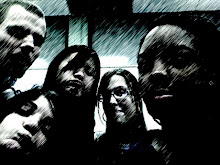'I liked the movie but the book was so much better,' if you ever wondered why time and time again your expectations were not satisfied by an other's reproduction, it's because as human beings we are blessed with the ability to be imaginative. Especially when we read written works we can take certain aspects out of those pieces that another person couldn't have. Consequently, if we question the power of words and the resulting change that can occur, the only sensible answer there is, is that words do have the power to change. Writing has such an unique appeal to people, that it captivates the attention of its readers in ways that can change the world.
Writing can change the hearts and minds of people in ways unimaginable. For instance, during the conflicts between the North and South on the issue of slavery, writing was a key to strengthening the people's perceptions and passions about the issue. The novel 'Uncle Tom's Cabin' by Harriet Beecher Stowe riled up the moral convictions of both the North and the South citizens. Furthermore, people in the North were further convinced of the cruelty of slavery and many Northerners also felt compelled to disobey the fugitive slave act; they were influenced by words of Thoreau on his topic called 'civil disobedience'. In that piece Thoreau wrote about people having a right to disobey laws that they truly feel are injust- he described that as practicing 'civil disobedience'. The words of those two people can be contributed to igniting the feelings of both sides of the nation eventually causing the Civil War...words can definitely cause changes.
Imagine having to do an impromptu speech on an important issue...for most people it would be very hard and the true essence and message of what you're trying to convey probably wouldn't be expressed to you're fullest ability. When time is given to write your message you can think through your thoughts, and certain phrases that are important to the success of the speech can be identified and created. Whereas, if you were to deliver a speech impromptu, you have more of a chance to say things you don't mean and once those things are said, there is no way to take them back. When you write down the ideas, you are given the a chance to think about what to say, write it, and make revisions to your work, so it can be clearly understood by its readers- and in essence, the message will be clearly be exhibited.
Subsequently, when ideas are clearly expressed, their message can reach more people. Take
Martin Luther king's speech "I have a dream", his words were able to reach millions because of his clarity; he didn't spurt off the first idea he thought. With the "I have a Dream" speech there was a lot of preparation... Can you fathom how the presentation of the Idea of "I have a dream" would have been if Martin Luther King wouldn't have prepared and had time to analyze his work: he wouldn't be able to truly send out his work to the public. Gandhi's speeches were definitely handled with a lot of patience and with an extreme amount of clearness. He understood that posterity would one day read, meditate and even act out his words. When writers realize the impact of their words, the message becomes clear to the audience...and when the audience can interpret the ideas of the writer, the audience can relate the writer's words to aspects in their life. Finally, Hitler is the best proof that writing CAN create change (although the change wasn't positive). Before Hitler rose to power he didn't have an army to stage a coup...but he knew that he had his words. To those who believe that words are meaningless and that 'talk is cheap', they should consider the incredible social change that these three men made created when they used their words.
Violence is a powerful tool that can gain the control of people, but one of the most extraordinary aspects of the 'power of the pen' is the fact that words remain forever; moreover,
when words last they can be meditated on by posterity, and can be enacted. Gandhi lived by the idea that violence solves nothing, but nonviolence can change everything. Because of his beliefs Gandhi made a speech, "resistance and nonviolence", it was delivered and widely accepted, creating many followers, of those being Martin Luther King. These two men prove that not only can writing create change... but, without writing change cannot occur.
Friday, February 20, 2009
Subscribe to:
Post Comments (Atom)


Extremely well done. Very thorough and I love the details in this. I like how you used examples from the Civil War to make your points. The point about taking time to write down your thoughts so that it would be said aloud clearly was a very good one. You supported the point very well with examples. I love your last line the best.
ReplyDeleteAn amazing piece of writing, Alexis. You deal with issues of power, identity, access, and social change. I can't wait to read more.
ReplyDelete